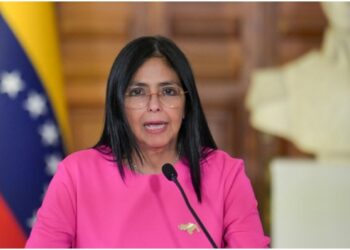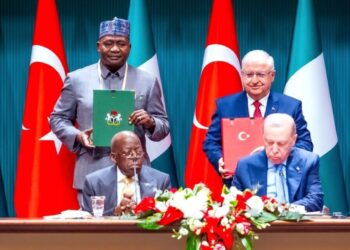By Emmanuel Nduka
Indian-American economist and top-ranking International Monetary Fund (IMF) official, Gita Gopinath, has announced her decision to leave the global financial institution and return to academia. She will rejoin Harvard University’s Economics Department on September 1, 2025, as the inaugural Gregory and Ania Coffey Professor of Economics.
In a post shared on X (formerly Twitter), Gopinath expressed gratitude for her nearly seven years at the IMF. “After nearly 7 amazing years at the IMF, I have decided to return to my academic roots,” she wrote.
Gopinath made history as the first woman to serve as the IMF’s Chief Economist before being elevated to the role of First Deputy Managing Director in 2022.
Reflecting on her tenure, she called her time at the IMF a “once-in-a-lifetime opportunity” during which she helped steer global economic policy through extraordinary challenges, including the COVID-19 pandemic, global inflation, and geopolitical tensions. “I now return to my roots in academia, where I look forward to continuing to push the research frontier in international finance and macroeconomics… and to training the next generation of economists,” she added.
Gopinath first joined the IMF in January 2019. Before that, she held the John Zwaanstra Professorship of International Studies and Economics at Harvard and was an assistant professor at the University of Chicago’s Booth School of Business from 2001 to 2005.
IMF Managing Director Kristalina Georgieva praised Gopinath’s contributions, calling her an “outstanding colleague, an exceptional intellectual leader” whose “analytical rigor” and “practical policy advice” guided the institution during a volatile period. “She steered the IMF’s analytical and policy work with clarity… during a time of high uncertainty and a rapidly changing global economic environment,” Georgieva said.
During her tenure, Gopinath led critical work in global fiscal and monetary policy, debt issues, and international trade. She played a pivotal role in major forums like the G7 and G20 and was instrumental in maintaining the IMF’s flagship World Economic Outlook report during the pandemic. She also co-authored a widely praised “Pandemic Plan” that outlined an actionable global vaccination strategy.
Her departure marks the end of a chapter at the IMF, where she was a trailblazer for women in economics and a voice of reason during one of the most turbulent economic eras in recent history.



































